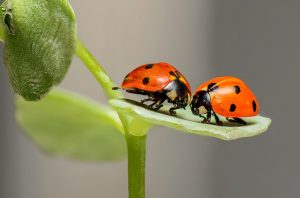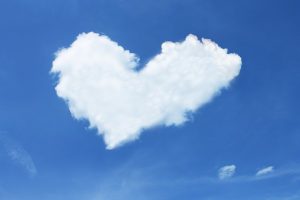So I know that Valentine’s Day is a corporate, capitalist, money-making scam that seeks to exploit our vulnerabilities and weaknesses for commercial gain. I think by now that we all – or at least most of us – do. But, nonetheless, the phenomenon remains a significant entity within most of Western culture. I mean you can’t escape it – the candies and chocolates, the bunting, the workplace dress-codes of red, pink and white. It really is ubiquitous.
Now, I’d forgive you for thinking that I’m saying all this because I’m a grinch who’s upset because she’s incapable of being loved, and you’d be right – at least, in one manner of speaking. My biggest problem with Valentine’s Day is not, actually, the commercialisation or commodification of romance and attraction and relationships – because I like to think that most of us grownups know how to recognise that for what it is, and that we have agency over whether or not we choose to participate in it. What I find most disheartening is that even in 2017, there’s still a very specific interpretation of “love” that gets focused on. And that it leaves so many of us out.

RonBerg / Pixabay
The other day, I was listening to a podcast about running – yeah, okay, I do that – and they featured a short segment where they spoke to couples whose origin stories involved running, to one or another extent. It was a cute idea for a segment, I’ll admit. But I can’t pretend that I didn’t notice that all of the couples they featured were straight. You might argue that queer people don’t run, or don’t listen to this particular podcast, or that they’re too busy being magical and fabulous to have the time to submit their stories for consideration – fine; I don’t believe any of that for a second, but let’s assume that were the case anyway.
The big smash musical of the season, perfectly timed for V-day? La La Land. Another movie about a straight couple. Newspaper articles, advertisements, all kinds of media – it’s all about “his and hers”. If you never noticed or thought about this before, I’m willing to bet it’s because some (or many, or all) of those couples probably look like you, or like what you would imagine your partnership to look like. If you’re queer… well, I’m pretty sure you’ve noticed by now how difficult it is to relate to so much of this stuff.
It’s not even about the fact that we don’t get to see ourselves in media – it goes a lot deeper than that. For many of us, by the time we are old enough or wise enough or learned enough to have found some words that we can use to describe our identities, we already know that in the eyes of many, there is something fundamentally different about us. Not just different; fundamentally wrong. We already know what love is supposed to look like. Or how people are supposed to act, based on how society reads them. By the time we understand ourselves, we’re already conditioned to hate ourselves.
The effect is compounded, I think, if you find yourself at the intersection of multiple marginalised identities. If you’re asexual in an allosexual world, if you’re lesbian in a straight world, if you’re trans in a cis world, things just get all the more difficult. We have a hard enough time trying to love ourselves – how can we ever truly believe that others will be able to love us? It’s a pretty painful reality to face.
We spend a lot of time in this day and age talking about building ourselves up, and working on our self-esteem, and things like self-love and self-care. But even if you manage to do all of that, coming face to face with the understanding that who you are might render you simply unlovable is a bitter pill to swallow. You start to wonder just how damaged someone else would need to be in order to put up with all your “shit”, and what that might say about you. Eventually, you can’t help but to sell yourself short, compromise on your principles or your desires, or simply settle for less than you’re worth.
I’ve done it before – I’ve made the compromises, lost myself, given too much, been chewed up, spat out, and left a mess. Because I didn’t think I deserved any better.
“Deserve” is a messed up concept in itself though; who in this world ever gets what they deserve? Whether I “deserve” to be or not, I am a challenge to any prospective partner. The barrier to entry is high, and anyone who overcomes it likely won’t stick around for very long. It isn’t anyone’s fault, of course. I don’t blame people for not being able to deal with me – I’m a handful. I don’t blame myself either, because every facet that makes me a challenge is something that contributes to who I am, and is something of which I am proud. I can – and maybe do – feel a little bit resentful that in the collective consciousness of most of society, people like me are rarely if ever seen in a context in which they are loved. Or in which they are healthy. Or in which they are capable or successful.
People have ideas about what I must be before they even meet me. And even if they do know me, those preconceptions don’t ever really go away, not completely. They still lurk beneath the surface. In my case? Even if the stars somehow align, and someone actually does want to date me, and we do actually have the requisite compatibility, and I actually do manage to let them in despite my misgivings… will I ever be free from asking myself, “When is it going to become too much?”
“When is it all going to end?”

stux / Pixabay
Because isn’t that the narrative that’s been drummed into us by now, both through the influence of society, and through our own experiences. Happiness is always transient, always ephemeral. When you’re queer, it always comes with an expiry date.
I’m fortunate to know a lot of happy queer couples (or other partnerships) out there. And I am grateful to know them, because I recognise that there is some hope inherent in that, to suggest that perhaps not all of our stories are destined to be tragic. But the fact of the matter is that the odds are still stacked against us, and often quite heavily so.
Admittedly, it’s not going to change much for me. I’m still going to be a handful, loaded top to bottom with all kinds of dealbreakers. But nonetheless, I still dream of living in a world where “couple” means “two people” instead of “man and woman”. Where relationships aren’t judged as “inappropriate” depending on the genders or orientations or identities of those involved in them.
I’m happy for Valentine’s Day to keep on existing, even if it is a contrived, capitalist construct. I just want it to be a little bit queerer.
